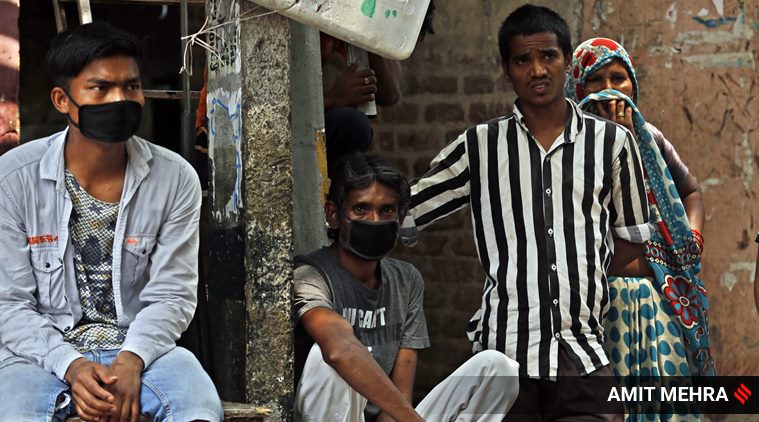 The Jhilmil Industrial Area is a hub of engineering goods, plastic items, wires and other units churning out household appliances.
The Jhilmil Industrial Area is a hub of engineering goods, plastic items, wires and other units churning out household appliances.
A 200-sq-ft room with an injection moulding machine, a gas cylinder and a bed. This is Hari Narayan’s toy-making unit and home, which he shares with his wife and four children at Jhilmil Industrial Area.
On May Day, he was supposed to celebrate the one-year anniversary of opening his own toy-making unit — a significant stride which took Narayan 20 years. To get here, he worked in many factories before accruing the technical know-how, an investment of Rs 3 lakh and, above all, the courage to open his own unit.
His daughter is in the final-year of a computer science course from a private college, and the other three children are studying in private schools. But the lockdown has undone two decades of progress. “I took a loan to pay for my daughter’s education. She is the first woman in my family to attend college. I fear now she will end up making toys like me for a living,” Narayan said.
The Jhilmil Industrial Area is a hub of engineering goods, plastic items, wires and other units churning out household appliances. There are over 600 units employing at least 7-8 skilled workers each. Most are machine operators who took two years to learn their trade and have, over the years, made enough to be able to afford college education for their children, buy a TV, and stay in two-room-set flats in the area.
The factory owners will find it difficult to operate even during a partial lockdown since most of the units are interdependent, said Jatinder Singh, secretary of Jhilmil Industrial Area Association (Block-A). “There are electricity bills and machine upkeep costs to pay. We have no idea how the workers will be paid. So far they have been given ration to survive. The government has to think about how to revive the industry. In this lockdown, if a unit makes household cables, then it can’t sell unless construction work is allowed. Everything is connected.”
Most labourers work 12-hour shifts, earning Rs 15,000-20,000. With the pandemic wiping out their savings, some feel ashamed standing in food lines and sad when their children offer to help.
Manoj Kumar (25), who makes oxygen tank readers, was 15 when he first began work at a salary of Rs 1,200. He now earns Rs 12,000, and has been teaching a new employee, Rupesh. Both of them have been staying inside their factory unit since the lockdown. Manoj said, “I have three children, and all of them go to a government school. I had ensured they all get private tuitions, but I can’t afford to pay anymore. How will they progress in life?”
Rakesh Kumar (33), who makes pressure cooker parts and earns Rs 12,000 per month, brims with joy when he mentions his daughter is a final-year BA student from Delhi University. He started with a salary of Rs 3,500 when he began working here eight years ago. Since the lockdown, his employer paid him his salary and Rs 5,000 every two weeks for ration. “My employer is a very kind man. He also supported my daughter’s education. I just hope she gets a job now.”
May Day is a grim reminder for Ram Babu (33), who lost his job at a plastic manufacturing unit years ago for asking a leave on this day. He currently works as a foreman for Rs 17,000 a month, while his wife and three children are in Allahabad. He has Rs 2,500 left and fears standing in a line: “I am not poor. I make enough to put my eldest son in a private school. It is a shame he will have go to a government school when all this is over.”
Kaliram (70) makes tea kettles for a living. His two sons, who work in a private company in UP, lost their jobs recently. “For 50 years I made kettles only so that my family can survive. They will not find a job for months now. Kaafi saal piche chale gaye,” he said.